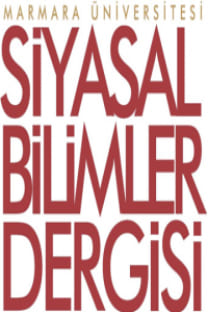Foucault’nun Yöntemi: Hakikatin Söylemsel İnşasının Arkeolojisi ve Soykütüğü
Foucault’s Method: The Archeology and Genealogy of Discursive Construction of Truth
The purpose of this paper is to examine archeological method and genealogical approach that Foucaultrefers to as both a method and a strategy. Portraying power-knowledge relations as the essence ofmodern society and discourse, Foucault extensively studied dominant discourses in Western thoughtsince 16th century through archeological method. By means of archeological method, the researchercould delve into the roots of dominant discourse functioned within culture. Archeology, in thisframework, is a practice or “archive” science in Foucault’s work. Taking archeology as a field of research,Foucault not only examines meaning or reality, but also examines the historical a priori or possibilities,existence and transformations of discourses as they acquire a positive character. Archeology, throughthe description of conditions or rules, tries to “make visible invisible that things are not visible inthe surface”. The genealogy, in the sense of history of present, investigates how we have constituted,recognized and accepted ourselves as subjects.
Keywords:
Foucault, Archeology, Genealogy, Post-structuralism Power-knowledge,
___
- Akay, A. (1995). Michel Foucault: İktidar ve Direnme Odakları, İstanbul: Bağlam Yayınları. Bayram, A., K. (2005). “Hakikat Rejimleri ve Söylemin Efendileri Arasında Bir Entelektüel: Michel Foucault”. Çağan, K. (Ed.), Entelektüel ve İktidar ss. 233-257. Ankara: Hece Yayınları. Bohman, J. ve McCarthy, T.A. (1987). After Philosophy. Cambridge: MIT Press. Bozkurt, N. (1988). “M. Foucault Felsefesinin Bazı Temel Kavramları”, Defter, Sayı:4, ss, 39-50 Connolly, W. E. (1993). “Beyond Good and Evil, The Ethical Sensibility of Michel Foucault”, Political Theory, Vol.21, No.3, ss. 365-389. London: Sage Publications. Deacon, R., A. (2003). Fabricating Foucault: Rationalising the Management of Individuals. Milwaukee: Marquette University Press. Descombes, V. (1993). Modern Fransız Felsefesi. (A. Yardımlı, Çev.) İstanbul: İdea Yayınları. Noujain, E. G. (1987). “History as Geneology: An Exploration of Foucault’s Approach to History”, Griffits,. A. P. (Ed.), Contemporary Philosophy. New York: Cambridge University Press. Foucault, M. (1987). “Questions of Method”. Bohman, J. ve McCarthy, T.A. (Ed.), After Philosophy. Cambridge: MIT Press. Miller, J. (2000). The Passion of Michel Foucault, Cambridge: Harvard University Press. Foucault, M. (1972). Archeology of Knowledge. New York: Harper and Row Pub. Foucault, M. (1984). “Nietzsche, Genealogy, History”, Rabinow, P. (Ed.), The Foucault Reader. New York: Pantheon. Foucault, M. (1988). “What is Enlightenment?”, Robinson, P. ve W.M. Sulliaum, (Ed.), Interpreting Social Science: A Second Look. London: University of California Press. Foucault, M. (1994). “Geneology and Social Criticism”, Seidman, S. (Ed.), The Postmodern Turn: New Perspective in Social Theory. New York: Cambridge University Press. Foucault, M. (1994). Dostluğa Dair, (C. Ener Çev.) İstanbul: Hil Yayınları. Foucault, M. (2003). Society Must be Defended: Lectures at the Collège de France, 1975–1976. New York: Picado. Foucault, M., (1977). Language, Counter-Memory, Practice: Selected Essays and Interviews. Newyork: Cornell University Press. Foucault, M. (2000). “Hakikat ve İktidar”. Keskin, F. (Ed.), Michel Foucault, Entelektüelin Siyasi İşlevi. İstanbul: Ayrıntı Yayınları. Gutting, G. (1994). Michel Foucault: A User’s Manual. Gutting, G. (Ed.), The Cambridge Companion to Foucault. New York: Cambridge University Press. Gutting, G., (2005). Foucault : a Very Short Introduction. Oxford: Oxford University Press. Gürbilek, N., Savaşır, İ. (1989). “Foucault’nun Hapishanelerine Giriş”, Defter, No:9, ss. 7-10 Harvey, I. (1988). “Foucault ve Dil, Düşünülmeyen Metaforlar”, Defter, (D. Kanıt Çev.), Sayı:4, ss. 16-32 Kelly, M. G. E., (2009). The Political Philosophy of Michel Foucault. New York: Routledge. Keskin, F. (2013). Michel Foucault. Tunçel, A. ve K. Gülenç (Ed), Siyaset Felsefesi Tarihi: Platon’dan Zizek’e. İstanbul: Doğu Batı Yayınları. Larrain, J. (1995). İdeoloji ve Kültürel Kimlik. (N. N. Domaniç, Çev.) İstanbul: Sarmal Yayınları. Lock, G. (2009). Foucault, Michel (1926-1984)., The Social Science Encyclopedia, (3. Baskı). London: Routledge. Mills, S. (2003). Michel Foucault. London: Routledge. Minson, J. (1988). Geneologies of Morals. London: The Macmillan Press. Nehamas, A. (1993). “The Examined Life of Michel Foucault”. New Republic, Vol.208, Issue 7, ss. 27-36 Nietzsche, F. (1967). The Will to Power. (W. Kaufmann ve R. J. Hollingdale, Çev.) New York: Random House. Philip, M. (1991). “Michel Foucault”, Çağdaş Temel Kuramlar. (A. Demirhan, Çev.) Ankara: Vadi Yayınları. Sarup, M. (1995). Postyapısalcılık ve Postmodernizm, (A. Güçlü, Çev.) Ankara: Ark Yayınevi. Skinner, Q. (1991). Çağdaş Temel Kuramlar. (A. Demirhan, Çev.) Ankara: Vadi Yayınları. Slattery, M. (2007). Sosyolojide Temel Fikirler. (Ü. Tatlıcan, Çev.) Bursa: Sentez Yayıncılık. West, D., (2007). “Continental Philosophy”. Goodin, R. E. Ve P. Pettit (Ed.), A Companion to Contemporary Political Philosophy. Oxford: Blackwell Publishing.
- Yayın Aralığı: Yılda 2 Sayı
- Başlangıç: 2013
- Yayıncı: Marmara Üniversitesi
Sayıdaki Diğer Makaleler
Hayatı ve Eserleriyle “Komple Bir Entelektüel” Olarak Dr. Hikmet Kıvılcımlı
Din ve Etnik: 20. Yüzyıl Boyunca Dobruca (Romanya)’da Müslüman, Türk ve Tatar Kimliği
Uluslararası Politik Ekonomi Açısından Dördüncü Sanayi- Endüstri Devrimi’nin Etkileri ve Türkiye
Mehmet ÖZKAN, Arzu AL, Serkan YAVUZ
Foucault’nun Yöntemi: Hakikatin Söylemsel İnşasının Arkeolojisi ve Soykütüğü
Birleşik Krallık’ın Avrupa Birliği’nden Ayrılma Referandumu: Brexit Süreci ve Sonuçları
